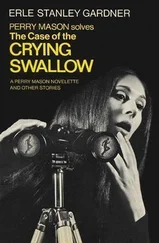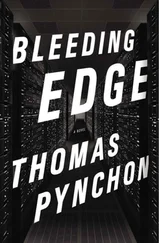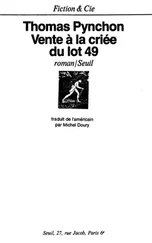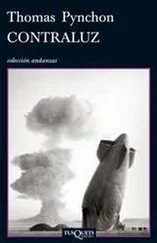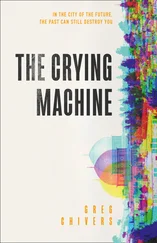"Hey," said Oedipa, "can't I get somebody to do it forme?"
"Me," said Roseman, "some of it, sure. But aren't you even interested?"
"In what?"
"In what you might find out."
As things developed, she was to have all manner of revelations. Hardly about Pierce Inverarity, or herself; but about what remained yet had somehow, before this, stayed away. There had hung the sense of buffering, insulation, she had noticed the absence of an intensity, as if watching a movie, just perceptibly out of focus, that the projectionist refused to fix. And had also gently conned herself into the curious, Rapunzel-like role of a pensive girl somehow, magically, prisoner among the pines and salt fogs of Kinneret, looking for somebody to say hey, let down your hair. When it turned out to be Pierce she'd happily pulled out the pins and curlers and down it tumbled in its whispering, dainty avalanche, only when Pierce had got maybe halfway up, her lovely hair turned, through some sinister sorcery, into a great unanchored wig, and down he fell, on his ass. But dauntless, perhaps using one of his many credit cards for a shim, he'd slipped the lock on her tower door and come up the conchlike stairs, which, had true guile come more naturally to him, he'd have done to begin with. But all that had then gone on between them had really never escaped the confinement of that tower. In Mexico City they somehow wandered into an exhibition of paintings by the beautiful Spanish exile Remedies Varo: in the central painting of a triptych, titled "Bordando el Manto Terrestre," were a number of frail girls with heart-shaped faces, huge eyes, spun-gold hair, prisoners in the top room of a circular tower, embroidering a kind of tapestry which spilled out the slit windows and into a void, seeking hopelessly to fill the void: for all the other buildings and creatures, all the waves, ships and forests of the earth were contained in this tapestry, and the tapestry was the world. Oedipa, perverse, had stood in front of the painting and cried. No one had noticed; she wore dark green bubble shades. For a moment she'd wondered if the seal around her sockets were tight enough to allow the tears simply to go on and fill up the entire lens space and never dry. She could carry the sadness of the moment with her that way forever, see the world refracted through those tears, those specific tears, as if indices as yet unfound varied in important ways from cry to cry. She had looked down at her feet and known, then, because of a painting, that what she stood on had only been woven together a couple thousand miles away in her own tower, was only by accident known as Mexico, and so Pierce had taken her away from nothing, there'd been no escape. What did she so desire escape from? Such a captive maiden, having plenty of time to think, soon realizes that her tower, its height and architecture, are like her ego only incidental: that what really keeps her where she is is magic, anonymous and malignant, visited on her from outside and for no reason at all. Having no apparatus except gut fear and female cunning to examine this formless magic, to understand how it works, how to measure its field strength, count its lines of force, she may fall back on superstition, or take up a useful hobby like embroidery, or go mad, or marry a disk jockey. If the tower is everywhere and the knight of deliverance no proof against its magic, what else?
SHE left Kinneret, then, with no idea she was moving toward anything new. Mucho Maas, enigmatic, whistling "I Want to Kiss Your Feet," a new recording by Sick Dick and the Volkswagens (an English group he was fond of at that time but did not believe in), stood with hands in pockets while she explained about going down to San Narciso for a while to look into Pierce's books and records and confer with Metzger, the co-executor. Mucho was sad to see her go, but not desperate, so after telling him to hang up if Dr Hilarius called and look after the oregano in the garden, which had contracted a strange mold, she went.
San Narciso lay further south, near L.A. Like many named places in California it was less an identifiable city than a grouping of concepts-census tracts, special purpose bond-issue districts, shopping nuclei, all overlaid with access roads to its own freeway. But it had been Pierce's domicile, and headquarters: the place he'd begun his land speculating in ten years ago, and so put down the plinth course of capital on which everything afterward had been built, however rickety or grotesque, toward the sky; and that, she supposed, would set the spot apart, give it an aura. But if there was any vital difference between it and the rest of Southern California, it was invisible on first glance. She drove into San Narciso on a Sunday, in a rented Impala. Nothing was happening. She looked down a slope, needing to squint for the sunlight, onto a vast sprawl of houses which had grown up all together, like a well-tended crop, from the dull brown earth; and she thought of the time she'd opened a transistor radio to replace a battery and seen her first printed circuit. The ordered swirl of houses and streets, from this high angle, sprang at her now with the same unexpected, astonishing clarity as the circuit card had. Though she knew even less about radios than about Southern Californians, there were to both outward patterns a hieroglyphic sense of concealed meaning, of an intent to communicate. There'd seemed no limit to what the printed circuit could have told her (if she had tried to find out); so in her first minute of San Narciso, a revelation also trembled just past the threshold of her understanding. Smog hung all round the horizon, the sun on the bright beige countryside was painful; she and the Chevy seemed parked at the centre of an odd, religious instant. As if, on some other frequency, or out of the eye of some whirlwind rotating too slow for her heated skin even to feel the centrifugal coolness of, words were being spoken. She suspected that much. She thought of Mucho, her husband, trying to believe in his job. Was it something like this he felt, looking through the soundproof glass at one of his colleagues with a headset clamped on and cueing the next record with movements stylized as the handling of chrism, censer, chalice might be for a holy man, yet really tuned in to the voice, voices, the music, its message, surrounded by it, digging it, as were all the faithful it went out to; did Mucho stand outside Studio A looking in, knowing that even if he could hear it he couldn't believe in it?
She gave it up presently, as if a cloud had approached the sun or the smog thickened, and so broken the "religious instant," whatever it might've been; started up and proceeded at maybe 70 mph along the singing blacktop, onto a highway she thought went toward Los Angeles, into a neighborhood that was little more than the road's skinny right-of-way, lined by auto lots, escrow services, drive-ins, small office buildings and factories whose address numbers were in the 70 and then 80,000's. She had never known numbers to run so high. It seemed unnatural. To her left appeared a prolonged scatter of wide, pink buildings, surrounded by miles of fence topped with barbed wire and interrupted now and then by guard towers: soon an entrance whizzed by, two sixty-foot missiles on either side and the name yoyodyne lettered conservatively on each nose cone. This was San Narciso's big source of employment, the Galactronics Division of Yoyodyne, Inc., one of the giants of the aerospace industry. Pierce, she happened to know, had owned a large block of shares, had been somehow involved in negotiating an understanding with the county tax assessor to lure Yoyodyne here in the first place. It was part, he explained, of being a founding father.
Barbed wire again gave way to the familiar parade of more beige, prefab, cinderblock office machine distributors, sealant makers, bottled gas works, fastener factories, warehouses, and whatever. Sunday had sent them all into silence and paralysis, all but an occasional real estate office or truck stop. Oedipa resolved to pull in at the next motel she saw, however ugly, stillness and four walls having at some point become preferable to this illusion of speed, freedom, wind in your hair, unreeling landscape-it wasn't. What the road really was, she fancied, was this hypodermic needle, inserted somewhere ahead into the vein of a freeway, a vein nourishing the mainliner L.A., keeping it happy, coherent, protected from pain, or whatever passes, with a city, for pain. But were Oedipa some single melted crystal of urban horse, L.A., really, would be no less turned on for her absence.
Читать дальше


